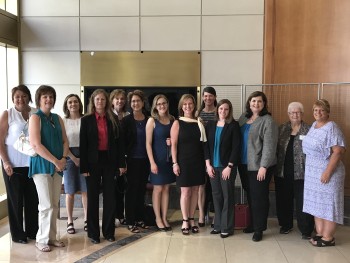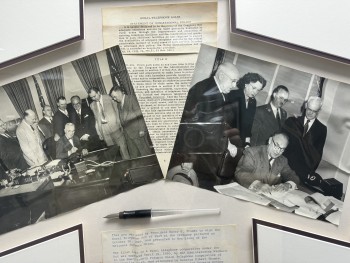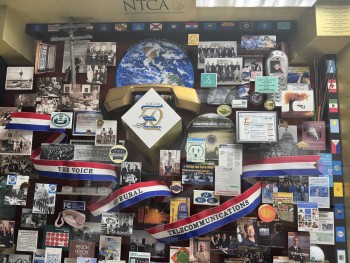As a student at Pier Elementary School in Fond du Lac, Wis., my claim to fame (aside from holding the lunchroom record for the most pickle slices consumed in one sitting on sloppy Joe day) was finishing the library's entire collection of the “Childhood of Famous Young Americans” series. This series gave insight into the childhoods of individuals who made historical impacts on our country in their adult years, and much of it served as an inspirational path for fifth graders to show that they too could have something to contribute to the greater good when they grew up. It really struck me when I would go through the titles how deep the bench was for men – everyone from our Founding Fathers to sports figures like Babe Ruth to war heroes like the “Swamp Fox” Francis Marion to explorers like Jacques Marquette and Louis Joliet. The female side of that ledger was considerably shorter, and while it did cover women like Amelia Earhart and Eleanor Roosevelt, it felt like they were reaching a bit to include Molly Pitcher and Betsy Ross.
That is why I love the idea behind the celebration of Women's History Month. It’s an entire month devoted to recognizing the importance and contributions of women who have helped move our country forward. It's certainly not that these women are any more important than the men, it's just that sometimes that extra effort to highlight their contributions is what is needed to pull out stories that might otherwise stay hidden forever.
Not unlike history in general, the rural broadband space has been dominated by the contributions of men who led the efforts to start programs like the REA Telephone Program and founded NTCA. One simply has to wander down a hallway here at NTCA to see historical photos of our first annual meetings. These stories have been beautifully captured by James L. Bass in “NTCA: A History,” a recap of our industry from a man who helped to found it and nurtured it to nearly where it is today. But I think that as we look forward, we have a wonderful opportunity in this industry to welcome a number of different and diverse faces around the leadership table that not only has gotten our industry where it is today but will also help take it well into the future.
I think of the women on the NTCA Board of Directors. Roxie Jorgenson, director at MTA (Palmer, Alaska), who serves as our current vice chair and knows something about being tough thanks to all of those Alaska winters and running her own business. I think about Tonya Mayer, CEO and general manager of Hemingford Cooperative Telephone Company and Mobius Communications (Hemingford, Neb.), and Jennifer Prather, CEO of Totelcom Communications, LLC (De Leon, Texas), who also sits around this leadership table. I think of the women who make up half of our Services Management Corporation Board of Directors, as well as our Group Health Program and Retirement & Security/Savings Plan committees, making key decisions for their own employees as well as thousands of rural broadband employees across the industry. I think of our Women in Telecom (WIT) program and its work to connect and inspire women. One of my favorite events each year is when our WIT members fly in each July, when Washington, D.C., is at its hottest and muggiest, to meet with women policymakers and host fundraisers for key women legislators from both political parties. Those same women are now working to create a NTCA WIT advisory council to formalize the great work the program does to bring innovation and ideas to the table across every aspect of the business.
Women like Cat Moyer, CEO of Pioneer Communications (Ulysses, Kan.), who leads our Industry and Regulatory Policy Committee at such a critical time as we navigate the future of universal service, the implementation of the Broadband Equity, Access, and Deployment program and a multitude of other industry issues. Women like Kristi Westbrock, CEO of CTC (Brainerd, Minn.), who taught policy makers how to splice fiber, and Jill Kuehny, CEO of Kanokla (Caldwell, Kan.), who so took to heart being a Smart Rural Community provider that she used that recognition to open some doors with local hospitals and economic developers. Jana Wallace, CEO of Panhandle Telephone Cooperative, Inc. (Guymon, Okla.), who has likely never held a gaming tool in her hand yet was an early adopter of hosting a series of esports events for local high schoolers. Women like Kara Semmler, executive director of the South Dakota Telecommunications Association (Pierre, S.D.), who picked up the phone to have "a chat" with her state's attorney general as soon as she saw his name on a negative letter about the Universal Service Fund (USF) to “educate him” on the merits and necessity of USF for South Dakota.
The list goes on and on, and if I go much further, I run the danger of leaving so many off. I will close by saying that celebrating the achievements of women who help create the legacy of the rural broadband industry is time well spent.




